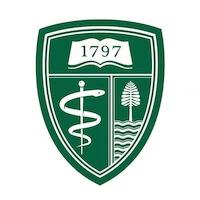Biomedical Data Science Grand Rounds with Leslie A. Lenert, MD, MS, FACP, FACMI
Talk title: "The Evolution of Learning Health Systems"
Please join us for our monthly Biomedical Data Science Grand Rounds with Leslie A. Lenert, MD, MS, FACP, FACP
of the Medical University of South Carolina on Thursday, September 27 at 12:00 p.m. in Auditorium E (DHMC).
Talk title: "The Evolution of Learning Health Systems"
Date: Thursday, September 27
Time: 12:00 p.m.
Location: Auditorium E, DHMC
Refreshments will be provided on a first-come, first-served basis.
Biography
Dr. Lenert works as a health systems engineer to create advanced social technical processes that address critical problems in translational and clinical research using information technology. His primary job as Chief Research Informatics Officer at the Medical University of South Carolina (MUSC) is to work to integrate clinical and research environments to create a learning health system that, in turn, supports the communities served by MUSC. A major focus of the work at MUSC is how to best use Epic electronic health records system to bring the opportunity to participate in research to as many patients at MUSC as possible. At Health Sciences South Carolina (HSSC), Dr. Lenert works to expand the learning health system to the state and throughout the south. Dr. Lenert’s research interests, in addition to the design and implementation of learning health systems, focus on the use of collaborative filtering for decision support in medicine to help clinicians with diagnostic and therapeutic reasoning and to help patients be more satisfied with their treatment choices.
Presentation Summary
The Learning Health System (LHS) is a model and, in some ways, a philosophical ideal, that links the practice of medicine, with its art, randomness, and inherent compromises, to the advancement of the science of human health. In an LHS, gaps in knowledge of how to practice medicine drive scientific investigation even as the results of scientific investigations advance the treatment of patients. This talk will review how informatics contributes to the foundations of the LHS and describe how advances in electronic health records systems and interoperability make learning possible at an unprecedented scale. But even as the LHS takes hold of the culture of medicine, advances in data science and artificial intelligence are disrupting our prior notions of what an LHS is by offering tools that advance the art of medicine, largely independent of the advancement of the science of human health. Examples will be drawn from the LHS developed over the past 10 years at the Medical University of South Carolina and at Health Sciences South Carolina, a statewide LHS partnership.
